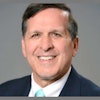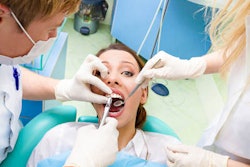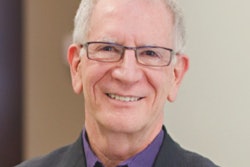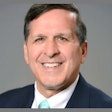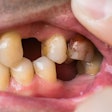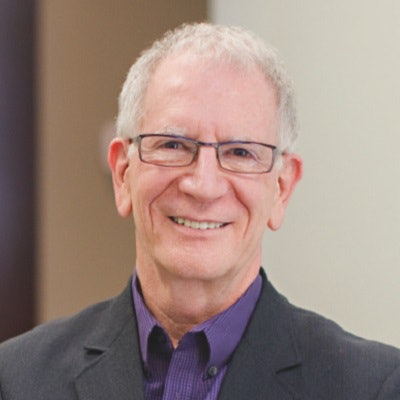
In part 1 of this series, Alvin Danenberg, DDS, discussed the controversy around the phrase biological dentistry after being asked about it by his patients. In this column, he lists questions to ask a provider using the label biological dentist.
One of the first things I tell my colleagues and patients is that they should educate themselves about what biological dentists should be doing for patients and their entire office team. This information can be obtained from reputable organizations such as the following:
 Alvin Danenberg, DDS.
Alvin Danenberg, DDS.- International Academy of Oral Medicine and Toxicology
- International Academy of Biological Dentistry and Medicine
- Holistic Dental Association
In addition, I recommend that they search the U.S. National Library of Medicine's PubMed.gov for peer-reviewed articles about the relationships between oral health and overall health.
It is important for dentists to be aware that some so-called biological dentists promote methods that are not supported by evidence-based medical research. Anecdotal testimonials may make a treatment or procedure sound legitimate, but if it's not supported by good science that can be repeated successfully by other clinicians with other patients, it doesn't hold up.
10 questions
Dentists and patients have questions about biological dentistry. Here are 10 questions I recommend asking any practitioners who call themselves a biological dentist.
“A one-weekend course should not qualify them as a true biological dentist.”
1. How did you become a biological dentist?
Dentists should be able to describe the many postgraduate courses they have taken to gain knowledge and experience. A one-weekend course should not qualify them as a true biological dentist.
2. Do you place mercury fillings to restore decayed teeth?
In my opinion, dentists should not be placing these toxic fillings in the mouth.
3. How do you remove unhealthy dental mercury fillings from patients?
Dentists should be able to describe in detail how they prepare and protect a patient from the mercury vapor that is released when removing these fillings. Also, dentists should explain how their office takes care to remove any toxic fumes in the dental operatory and how the dental staff is protected from these fumes.
4. Do you recommend antimicrobial mouthwashes and toothpastes to be used by your patients on a daily basis?
Any antimicrobial product used daily will kill bad bacteria and also good and critical bacteria that are required for mouth health, gut health, and overall health.
5. Do you counsel your patients about nutrition?
Dentists should have an active program for children and adults that help wean them off of unhealthy food choices, which could damage the mouth and the rest of the body. These include added sugars, processed and refined carbohydrates, and all sodas, as well as foods that contain chemicals that could damage the gut. The office's nutritional program also should suggest substitutions to replace those bad food choices.
6. What is the rationale for doing a root canal on a tooth?
If there is infection at the base of the root or surrounding the root, dentists should explain the potential hazards of a root canal procedure and the benefits of possibly removing the tooth, along with the other treatment options.
7. What precautions do you take when extracting a tooth to prevent any residual infection in the bone socket?
How does the dentist clean the socket completely of any foreign material and infected tissues? What measures does the dentist take to protect the healing of the socket?
8. Do you use fluoride in the office?
This is a controversial subject. A dentist should explain the benefits and potential risks of fluoride if it were to become systemic in the body. The dentist also should suggest alternatives to the placement of fluoride in the mouth.
9. How do you determine that a dental material is compatible with a patient?
A dentist should describe several biocompatibility tests that can help determine if a particular material will cause a biochemical reaction in the body.
10. What will happen if this procedure is not done?
This is a question we all face everyday from patients. If a dentist cannot honestly tell you the medical necessity of any procedure suggested, then knowingly diagnosing diseases and conditions that don't exist is fraud. Knowingly providing unnecessary treatment is fraud. Overtreating just to run up the dental bill is fraud.
My thoughts
I believe all medicine should be practiced in a biological way. That means that the entire body should be considered, not just the manifestation of a single disease. Treatment should be proactive and not only reactive. Cure also must include prevention. Whatever affects one cell in the body will eventually affect all cells.
Alvin Danenberg, DDS, has retired from the private practice of periodontics in Bluffton, SC. He continues to be on the faculty of the College of Integrative Medicine and created its integrative periodontal teaching module. He also spent two years as chief of periodontics at Charleston Air Force Base earlier in his career. His website is drdanenberg.com.
The comments and observations expressed herein do not necessarily reflect the opinions of DrBicuspid.com, nor should they be construed as an endorsement or admonishment of any particular idea, vendor, or organization.



